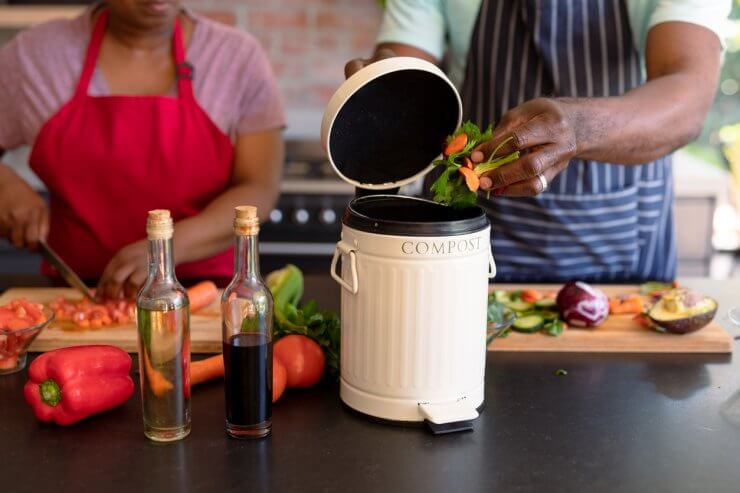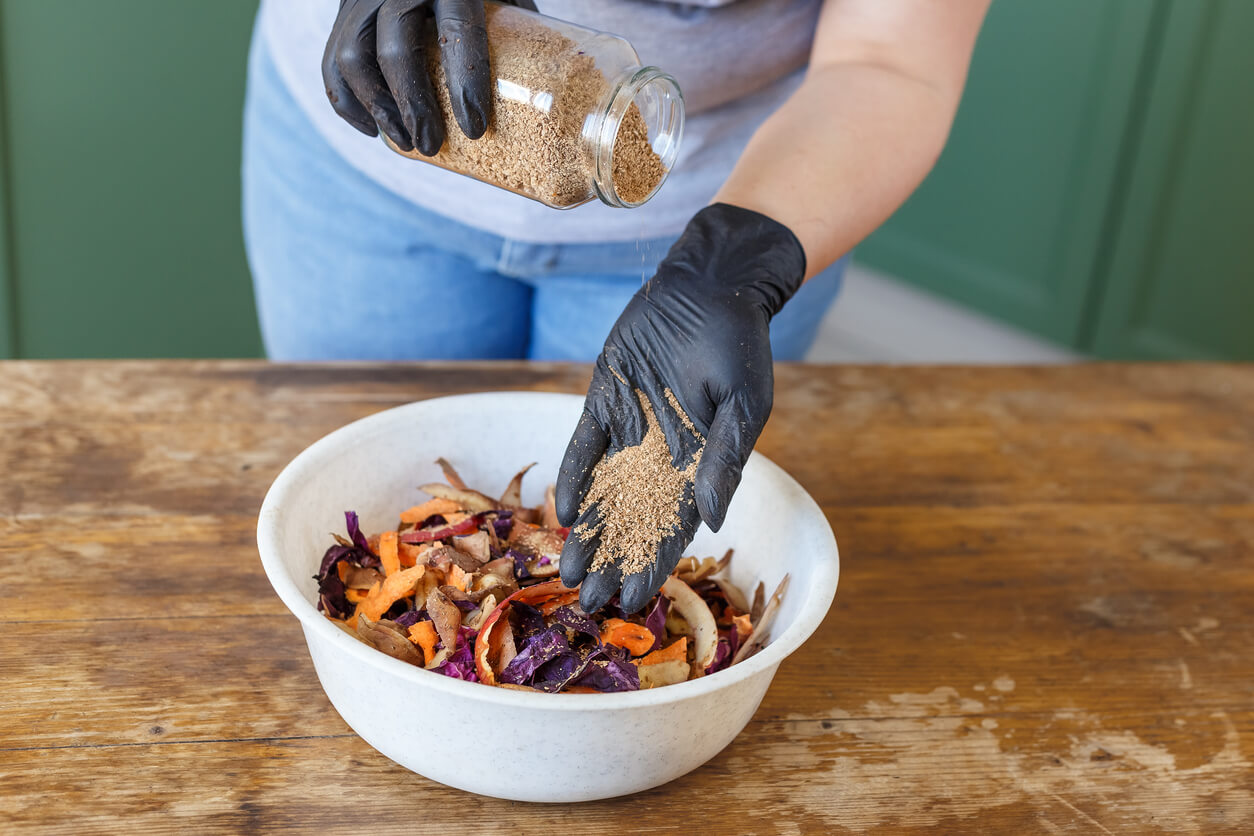
Compost, that black gold of the garden, has a very intriguing inner life. Bacteria, fungi, microorganisms, chemical reactions, and fascinating transformations are all present in the midst of our compost pile. The most common way is through an aerobic process, meaning with oxygen. But there’s another way to get that super-rich source of garden nutrients: fermenting compost.
Fermenting compost is an anaerobic process, meaning it occurs without oxygen. For those of us used to the idea that oxygen is a vital part of composting, this can feel a bit disorienting. I won’t pretend to be a science teacher here, but the two processes work with different microbes. Think of them like mammals that breathe oxygen and live (mostly) on land and sea creatures that live in an environment with limited oxygen (which isn’t entirely anaerobic, but hopefully gives you a general idea).
In fact, typical composting requires us to stir things up regularly to ensure there is oxygen throughout the compost pile. We mix our greens and browns, such as grass clippings, corn husks, plant waste, coffee grounds, and egg cartons, add a little moisture if needed, and all those little microbes start breaking things down and heating things up.
Anaerobic compost, perhaps better known as bokashi, “is produced by the fermentation of organic materials with a microbial inoculant,” according to the University of Vermont. Fermenting compost in this way is a faster process than traditional composting. And there are plenty of benefits for your garden.
Discover 7 top tips for growing, harvesting, and enjoying tomatoes from your home garden—when you access the FREE guide The Best Way to Grow Tomatoes, right now!

5 reasons your garden will love you for fermenting compost
1. More nitrogen. A research project at the University of Rhode Island found that fermenting compost resulted in 3.54% total nitrogen, as compared to 1.16% with aerobic composting.
2. More carbon. That same study found that the total carbon was 46.85% for bokashi vs. 20.38% for aerobic composting.
3. Increased potassium. While aerobic composting resulted in 4,920 mg kg(-1), bokashi came in at 8,250. Interestingly, vermicomposting trounced both of these methods, with potassium numbers at 22,250.
4. Increased micronutrients. Along with more significant percentages of nitrogen, carbon, and potassium, fermenting compost also results in higher percentages of calcium, magnesium, and iron vs. aerobic composting.
5. Increased yield. One study reported that treating the soil with bokashi resulted in a higher yield of onions and peas, and heavier (though not more abundant) corn cobs.
It’s not just your garden that will appreciate fermenting compost, though. Because this occurs in sealed containers, this type of composting is ideal for people who don’t want or have room for a sizable composting pile. Everything is neat and tidy, all in one bucket or container.
Bokashi is also a complete composting process. By that, I mean that unlike aerobic composting, fermenting compost allows you to include things like meats and dairy products. These won’t break down in your typical compost pile, plus you run the risk of attracting rodents. But since bokashi is in a sealed container, you don’t have to worry about pests, plus the process will also break down those additional food items.
Lastly, bokashi is an efficient way to compost because your waste will break down in about two weeks. At that point, you can work it into the ground, where it will continue to break down and stabilize for about two additional weeks. Then your garden is ready for planting!
Have you tried composting this way? How did it work out for you?
Note: Food Gardening Network contains links to affiliate websites, including Amazon and Rakuten Affiliate Network, and we may receive a commission for any eligible purchases made by you through links on this page. Any reviews are based on honest reviews of the products.
Discover 7 top tips for growing, harvesting, and enjoying tomatoes from your home garden—when you access the FREE guide The Best Way to Grow Tomatoes, right now!





This did not provide enough information. I am left wondering how to do this.
Click on the link to bokashi and it takes you to a November 8, 2022 column that explains how to ferment compost using bokashi.
For years, we have put kitchen veggie-fruit waste and coffee grounds into a large, plastic coffee “can” with lid that we keep under the sink. By the time it is full, most of the waste has turned into a black, foul-smelling liquid via anaerobic processes. Depending on the time of year, we can then mix it into our container garden soil or pour it onto the compost pile.
Interesting. I collect my compostable materials in a closed container for 7-10 days before I get around to taking them to composter outside.
They are also slimy, moldy, and have liquid at the bottom.
Perhaps I should leave them to “ferment” further and take them directly to the garden instead of the composter?
How much does it cost?
Nothing if you repurpose containers you have on hand that have a lid that blocks air from entering.